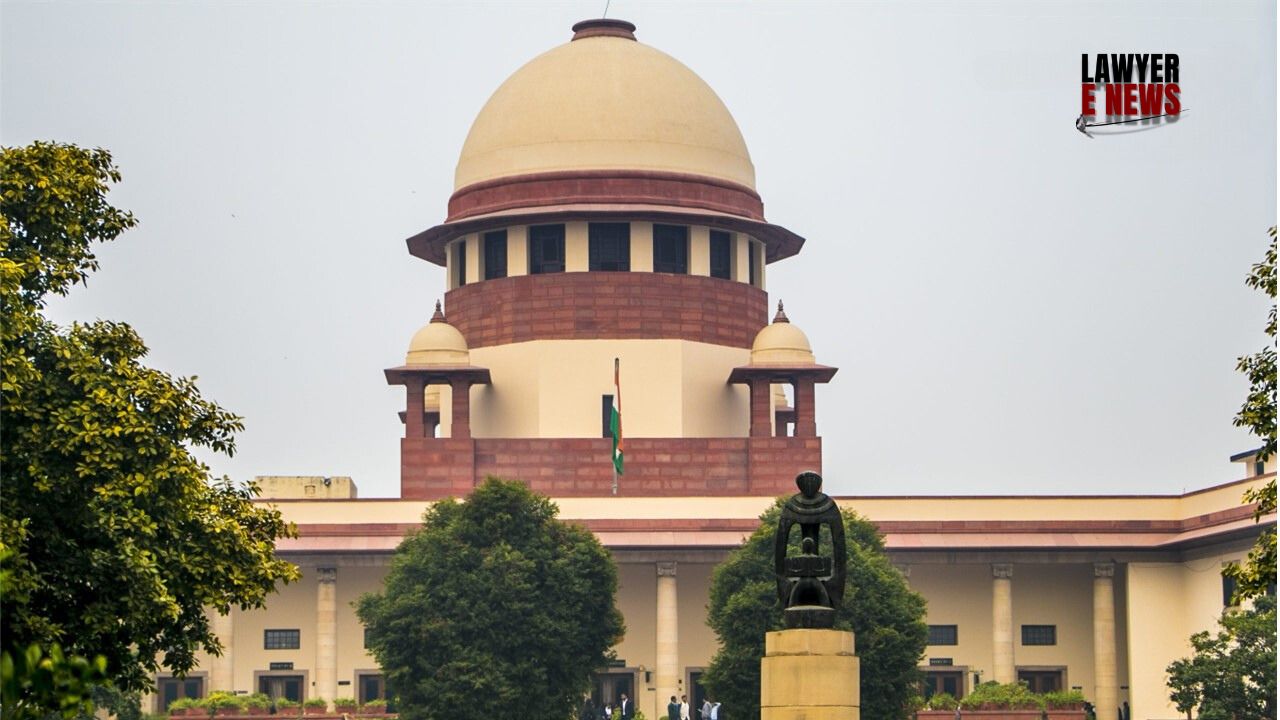-
by Admin
15 February 2026 5:35 AM



Supreme Court of India quashed an FIR and subsequent proceedings against a retired Housing Board official accused of conspiracy and forgery in a property transaction. The Court underscored that criminal charges require evidence of intent and cannot be based on bald allegations of complicity.
The case involved House No. D-90 in Deendayal Nagar, Ratlam, originally allotted to Gopaldas under a hire-purchase agreement. A series of transactions over decades led to allegations of forgery against multiple individuals, including the appellant, Dinesh Kumar Mathur, a former Housing Board employee.
The appellant faced charges under Sections 419, 420, 467, 468, 471, and 120B of the Indian Penal Code (IPC). The complaint alleged that Mathur facilitated the fraudulent transfer of the property based on a forged power of attorney. The appellant’s petition to quash the FIR under Section 482 of the Code of Criminal Procedure (CrPC) was dismissed by the Madhya Pradesh High Court, prompting the appeal to the Supreme Court.
The Supreme Court emphasized that criminal liability requires the presence of mens rea (criminal intent). The Court noted that there was no evidence suggesting Mathur acted with the intent to defraud.
“Sections when put into a chargesheet, cannot be based on bald assertions of connivance; there must be substance, which is entirely lacking in the present case.”
The appellant argued that his actions were protected under Section 83 of the Madhya Pradesh Griha Nirman Mandal Adhiniyam, 1972, which grants immunity to public servants acting in good faith. The Court accepted this defense, stating:
“There is no inkling, apart from alleging connivance, to suggest that the appellant had played a role in dereliction of his duty.”
The Court held that the ingredients of Sections 420 (cheating) and 120B (criminal conspiracy) IPC were not met. Referring to the established principles in State of Haryana v. Bhajan Lal, the Court reiterated that proceedings should be quashed where allegations fail to disclose a cognizable offense.
The Court observed that the appellant acted within his official duties as a Housing Board official. Relying on the precedent in Shambhoo Nath Misra v. State of U.P., the Court held that acts integrally connected with public duty are protected from prosecution without prior sanction under Section 197 of the CrPC.
The Supreme Court quashed the FIR and all subsequent proceedings, stating:
“No intention whatsoever could be attributed to the present appellant, and in the absence of any intention attributable to him, no criminal offense can be made out.”
The Court highlighted the importance of protecting public servants from frivolous prosecutions, especially when they act in good faith and within the scope of their official duties.
This judgment reiterates the principle that criminal proceedings cannot proceed without prima facie evidence of intent. It serves as a reminder that public servants acting in good faith must be shielded from unwarranted legal actions to ensure efficient governance.
Date of Decision: January 2, 2025
